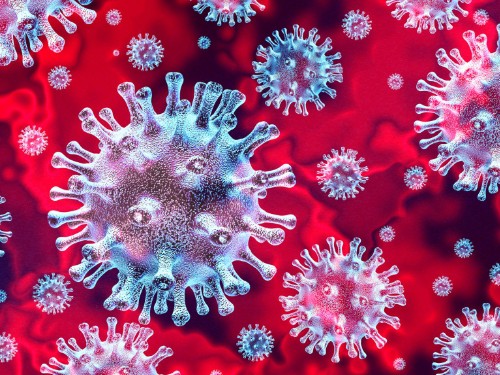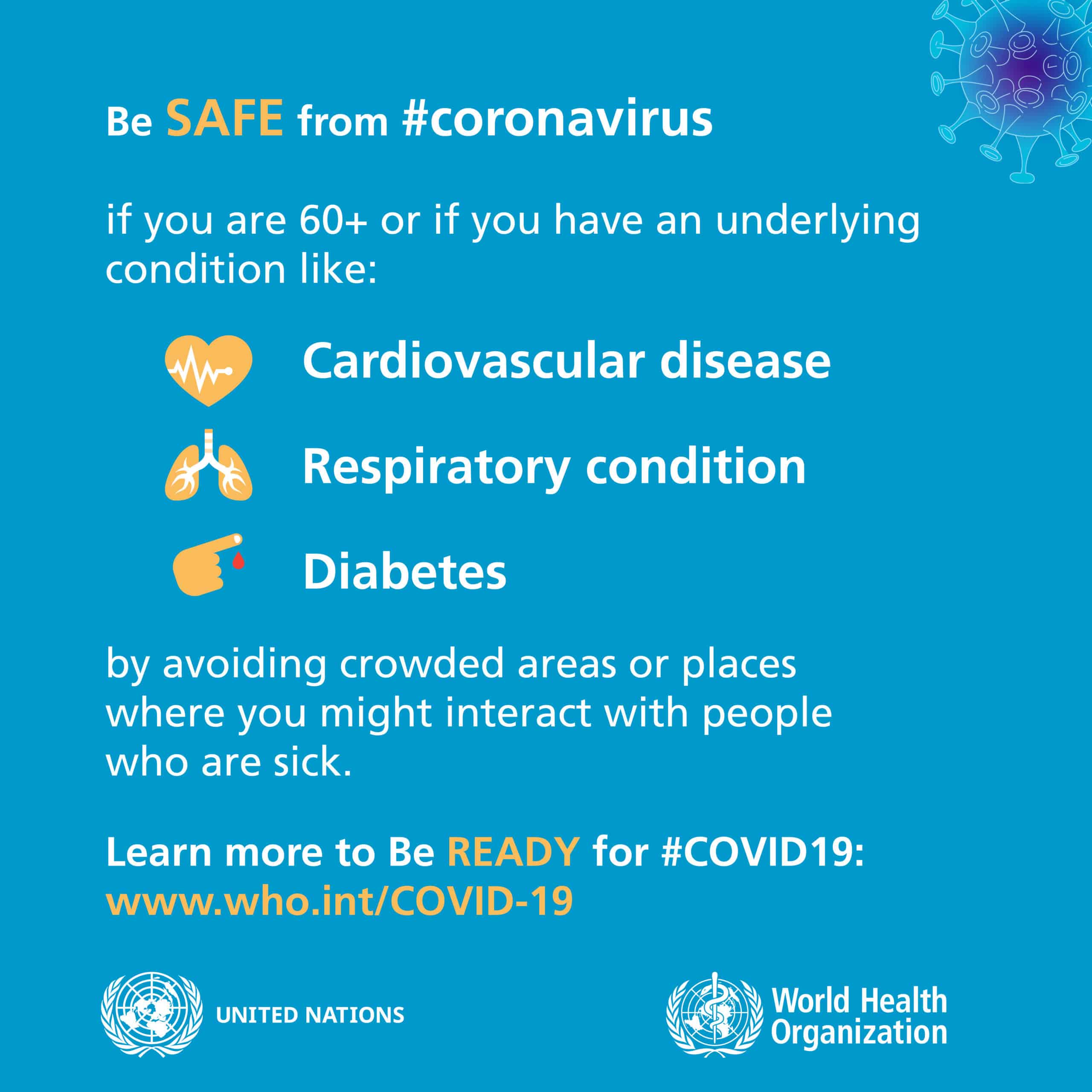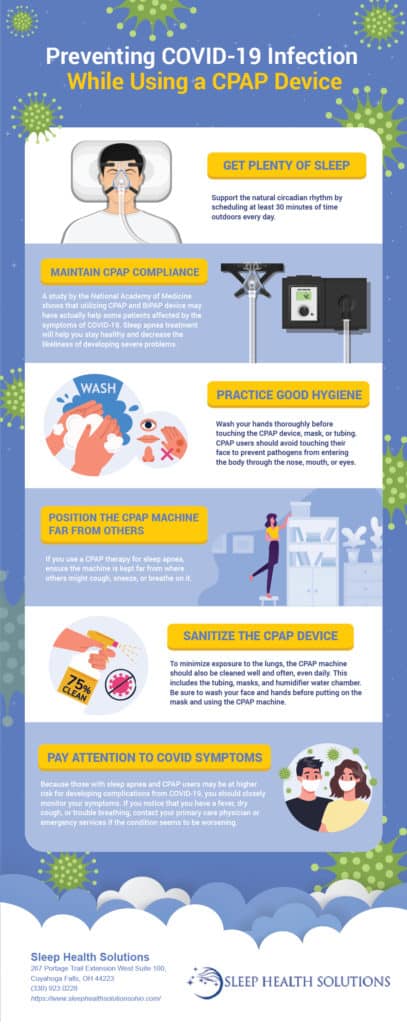Coronavirus Concerns for Patients with Sleep Apnea
Everyone is talking about the infectious outbreak turned pandemic which is sweeping the globe. COVID-19 is not just cause for concern; it is now putting stress on the entire healthcare industry and sending thousands to the hospital with respiratory complications. Because this new Coronavirus is particularly dangerous for older people and those with pre-existing conditions, patients with sleep apnea need to know about their risk factors.
As a service to our clients and community during this time of uncertainty, we want to share the latest and most relevant information related to the risk of Coronavirus for those with obstructive sleep apnea and using CPAP devices.
Refer to our COVID Resource Page.
Are those with Sleep Apnea More at Risk for Coronavirus?
Because this virus is new, scientists and doctors are still working to understand how it operates and who it affects the most. What we do know is that two significant factors related to OSA are also linked to a higher risk for serious complications from COVID-19. These two factors are chronic health conditions and age. There is also evidence of a third risk factor – sleep aspiration – related to people using a CPAP machine.
Underlying Health Conditions
Coronavirus has caused a higher mortality rate for patients with underlying health conditions. These include chronic conditions like diabetes, heart disease, lung ailments, and respiratory diseases, like COPD and sleep apnea. According to the CDC, the fatality rate for patients with other health problems ranges from 6 to 10.5%, compared to 0.9% for otherwise healthy patients.
Sleep apnea has been linked to other conditions, such as heart disease and diabetes, which means that these patients are likely included in this higher risk category.
Age
Since the outbreak began, doctors have noted a correlation between the rate of serious complications from Coronavirus and age. For example, older patients seemed to be more susceptible to pneumonia, which can be deadly. Some doctors hypothesize that this link is due to an age-related weakening of the immune system and increased inflammation response.
Sleep apnea is more prevalent among patients over the age of 65. Because patients with sleep apnea are more likely to be older, they are also more at risk for experiencing complications from the Coronavirus.
Sleep Aspiration
Unlike the common cold or flu, which starts in the nose and throat and affects the upper respiratory tract, this virus tends to affect the lower airways. The Coronavirus infects the cells below the voice box and gets deep into the lungs. This can happen through inhaled air, but also from the aspiration of fluid from the nose and saliva that drains from the mouth down a person’s throat.
Aspiration is normal and it happens more often while a person is sleeping. Aspirated fluids can carry bacteria and pathogens that can lead to pneumonia, especially in older patients and those with lung damage, from smoking or chronic asthma for example.
This is important for patients using CPAP devices to understand because proper hygiene and safety measures are needed to ensure that the pressurized air does not facilitate the pathway for contagions. Keep using your CPAP machine though; getting a full night’s rest is crucial to staying healthy. Read below for more specific advice.
Stay Healthy & Prevent Infection While Using a CPAP Device
CLICK HERE TO DOWNLOAD INFOGRAPHIC
In addition to the standard guidelines for preventing the spread of the COVID-19 disease which we all know so well by now, people with sleep apnea should take a few extra precautions.
1. Get Plenty of Sleep
Research tells us that sleep is important to keeping the immune system strong and fighting off illness. Adequate sleep also helps your body recover from sickness. It is important not just to go to bed early, but to ensure you are getting quality rest.
2. Maintain CPAP Compliance
Because sleep apnea disrupts sleep, effective management of symptoms through CPAP therapy is more critical now than ever. Sleep apnea treatment will help you stay healthy and decrease the likeliness of developing severe problems. So, there is no reason to stop using the CPAP machine. In fact, a study by the National Academy of Medicine shows that utilizing CPAP and BiPAP device may have actually help some patients affected by the symptoms Coronavirus.
Refer to our article on How to Ensure CPAP Therapy Works for You.
3. Practice Good Hygiene
CPAP users should avoid touching their face to prevent pathogens from entering the body through the nose, mouth or eyes. Washing hands properly and disinfecting frequently touched surfaces in the house are key. The World Health Organization urges everyone to practice respiratory hygiene which includes covering your mouth and nose with a bent elbow or tissue when coughing or sneezing. Then disposing of used tissues immediately.
Remember to wash your hands thoroughly before touching the CPAP device, mask or tubing.
4. Position the CPAP Machine Far from Others
If you use a CPAP therapy for sleep apnea, ensure the machine is kept far from where others might cough, sneeze, or breathe on it.
5. Sanitize the CPAP Device
To minimize exposure to the lungs, the CPAP machine should also be cleaned well and often, even daily. This includes the tubing, masks, and humidifier water chamber. Be sure to wash your face and hands before putting on the mask and using the CPAP machine.
Refer to our Easy Guide to Cleaning Your CPAP Mask & Hose.
6. Replace the Filter
Check the instructions provided by the filter manufacturer. Replace the filter in the CPAP machine as directed, usually after two weeks or six months with regular washing.
7. Pay Attention to Symptoms
Because those with sleep apnea and CPAP users may be at higher risk for developing complications from COVID-19, you should closely monitor your symptoms. If you notice that you have a fever, dry cough, or trouble breathing, contact your primary care physician or emergency services if the condition seems to be worsening.
Related articles:
- How CPAP Therapy Is Helping People with OSA Live Longer
- How Remote Work and Virtual Learning Can Lead to Sleep Deprivation
- Is Post-COVID Fatigue Syndrome Real?
- Insomnia & Sleep Apnea Treatment Is Now Helping People Through Telehealth.
A Word from Sleep Health Solutions
We care about the people in our community and encourage you to take this infectious outbreak seriously. Follow the precautions outlined by healthcare providers and medical experts. Our sleep clinic will continue to provide services, while handling more patient interactions remotely.
Please contact our office if you have any questions about sleep apnea diagnosis and treatment, our office hours, or the services available during this period. Call (330) 923-0228 or use the contact form below.



